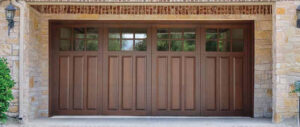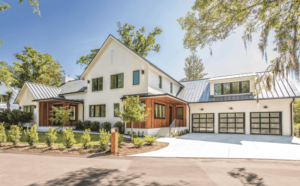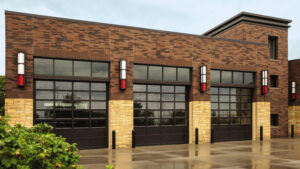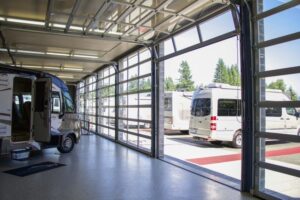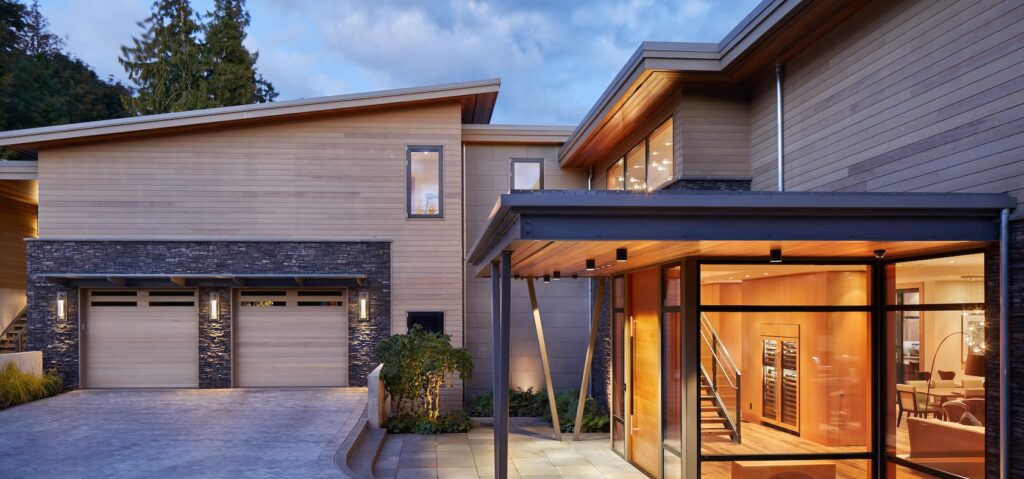A noisy garage door can be frustrating, especially when it wakes up the whole house. If you’re dealing with a loud garage door, don’t worry! There are simple ways to reduce the noise and make your garage door quieter. Here’s what you need to know.
Understanding the Causes of a Noisy Garage Door
Before fixing the issue, it’s helpful to understand why your garage door is making so much noise. Some common causes include:
1. Loose Hardware
Garage doors move up and down multiple times a day, and all that movement can loosen nuts, bolts, and screws. When these pieces become loose, they create rattling sounds as the door operates. This is a common cause of excessive noise and one of the easiest fixes.
2. Worn-Out Rollers
Rollers help guide the garage door along its tracks, ensuring smooth operation. Over time, rollers wear down and can create loud grinding, squeaking, or clicking noises. If the rollers are metal, they can also rust, making the issue worse.
3. Lack of Lubrication
Moving parts, such as rollers, hinges, and springs, require lubrication to function properly. Without it, the friction between these components increases, leading to a louder garage door. Lack of lubrication can also cause premature wear and tear.
4. Misaligned Tracks
If the tracks on either side of the garage door are out of alignment, the door may scrape against them while moving. This creates a screeching or dragging sound that can worsen over time.
5. Old Garage Door Opener
Not all garage door openers are the same. Chain-driven openers, for example, tend to be noisier than belt-driven models. If your garage door opener is outdated, it may contribute to the overall noise.
Ways to Make Your Garage Door Quieter
Now that you understand the possible causes, here are some practical solutions to reduce noise and improve your garage door’s performance.
1. Tighten All Hardware
Using a wrench or socket set, go through all the nuts, bolts, and brackets on your garage door and opener. Tighten any loose parts, but be careful not to overtighten, as this can strip the threads. This simple fix can help eliminate rattling and vibrating noises.
2. Lubricate All Moving Parts
Proper lubrication is key to a quieter garage door. Apply a high-quality silicone-based lubricant or white lithium grease to the following parts:
- Rollers
- Hinges
- Springs
- Tracks (wipe clean before applying)
Avoid using WD-40—it is a degreaser and won’t provide lasting lubrication. Regular lubrication should be done every six months to keep your door operating smoothly and quietly.
3. Replace Metal Rollers with Nylon Rollers
Metal rollers can be noisy, especially if they are worn out or rusted. Upgrading to nylon rollers can make a significant difference. Nylon rollers are not only quieter but also more durable and require less maintenance.
4. Inspect and Align the Tracks
If your garage door tracks are bent or misaligned, the door may scrape against them, creating excess noise. To fix this:
- Loosen the brackets holding the tracks in place.
- Adjust them so they are straight and properly aligned.
- Tighten the brackets back into place.
- Use a level to ensure both sides are even.
5. Upgrade to a Belt-Driven Garage Door Opener
If your garage door opener uses a chain drive, consider upgrading to a belt-driven model. Belt-driven openers are much quieter because they use a reinforced rubber belt instead of a metal chain. They also tend to have a smoother operation.
6. Install Garage Door Insulation
Adding insulation to your garage door can help absorb sound and reduce vibrations. Insulated doors are not only quieter but also improve energy efficiency, keeping your garage cooler in the summer and warmer in the winter.
7. Use Anti-Vibration Pads
Garage door openers can transfer vibrations through the ceiling and walls, making the noise seem louder. Installing rubber anti-vibration pads under the garage door opener and motor can help absorb these vibrations and reduce noise.
8. Check and Replace the Weather Stripping
The weather stripping at the bottom of the garage door helps cushion its impact when closing. If the weather stripping is worn out or missing, the door may slam down noisily. Replacing it with a new strip can help dampen the sound.
9. Add Noise-Reducing Foam Strips
Applying foam strips along the garage door panels can help reduce vibrations and noise. These strips absorb sound and minimize the impact when the door opens and closes.
When to Call a Professional
If you’ve tried these solutions and your garage door is still noisy, it might be time to call a professional. A trained technician can inspect the door, make necessary adjustments, and recommend any needed repairs. Signs you should seek professional help include:
- Persistent loud noises even after maintenance.
- Difficulty opening or closing the garage door.
- Broken springs or cables.
- Uneven movement of the garage door.
Benefits of a Quieter Garage Door
Taking steps to reduce garage door noise can provide several benefits:
- Better Sleep – No more waking up family members when using the garage late at night or early in the morning.
- Less Stress on Parts – Proper maintenance reduces wear and tear, extending the lifespan of your garage door components.
- Improved Home Value – A well-maintained, quiet garage door adds to the appeal of your home.
Enhanced Safety – Addressing noisy issues early can prevent bigger problems that may lead to dangerous malfunctions.
Can You Spray WD-40 on Garage Door Rollers?
While WD-40 is commonly used as a lubricant, it is not the best choice for garage door rollers. WD-40 is a degreaser, meaning it can clean off dirt and grime but won’t provide long-lasting lubrication. Instead, it’s best to use a silicone-based lubricant or white lithium grease. These lubricants will ensure smooth operation and reduce noise without attracting dust and debris.
What Is a Garage Door Silencer?
A garage door silencer is a device or modification designed to reduce the noise created by a garage door opener. It can come in several forms, including anti-vibration pads, noise-reducing mounts, or insulated garage door panels. Some homeowners also opt for belt-driven garage door openers, which are naturally quieter than chain-driven models. Adding a garage door silencer can help make opening and closing your garage door much less disruptive.
What Is the Best Lubricant for Garage Doors?
The best lubricant for garage doors is a silicone-based spray lubricant or white lithium grease. These lubricants effectively reduce friction on moving parts such as:
Rollers
Hinges
Springs
Tracks (wipe clean before applying)
Avoid using WD-40 or other degreasers, as they do not provide lasting lubrication. Regularly applying the right lubricant (every six months) will help keep your garage door running smoothly and quietly.
How Do I Make My Garage Door Less Noisy?
There are several ways to reduce garage door noise and make its operation smoother:
Tighten Loose Hardware – Use a wrench to secure any loose nuts, bolts, and brackets.
Lubricate Moving Parts – Apply a silicone-based lubricant or white lithium grease to rollers, hinges, and springs.
Replace Metal Rollers with Nylon Rollers – Nylon rollers are much quieter and require less maintenance.
Check and Align the Tracks – Ensure the tracks are straight and free of debris.
Upgrade to a Belt-Driven Opener – Belt-driven openers are much quieter than chain-driven models.
Install Garage Door Insulation – Adding insulation reduces vibrations and dampens sound.
Use Anti-Vibration Pads – Place rubber pads under the garage door opener to absorb noise.
Replace Weather Stripping – A worn-out bottom seal can create loud closing noises.
If your garage door is still excessively noisy after trying these steps, it may be time to call a professional for an inspection and necessary repairs.
Enjoy a Quieter Garage Door Today!
A loud garage door doesn’t have to be part of your daily routine. By following these tips, you can significantly reduce noise and enjoy a smoother, quieter operation. Need professional help? Contact OHD Bellingham today at (360) 734-5960 for expert garage door maintenance and repair services!

